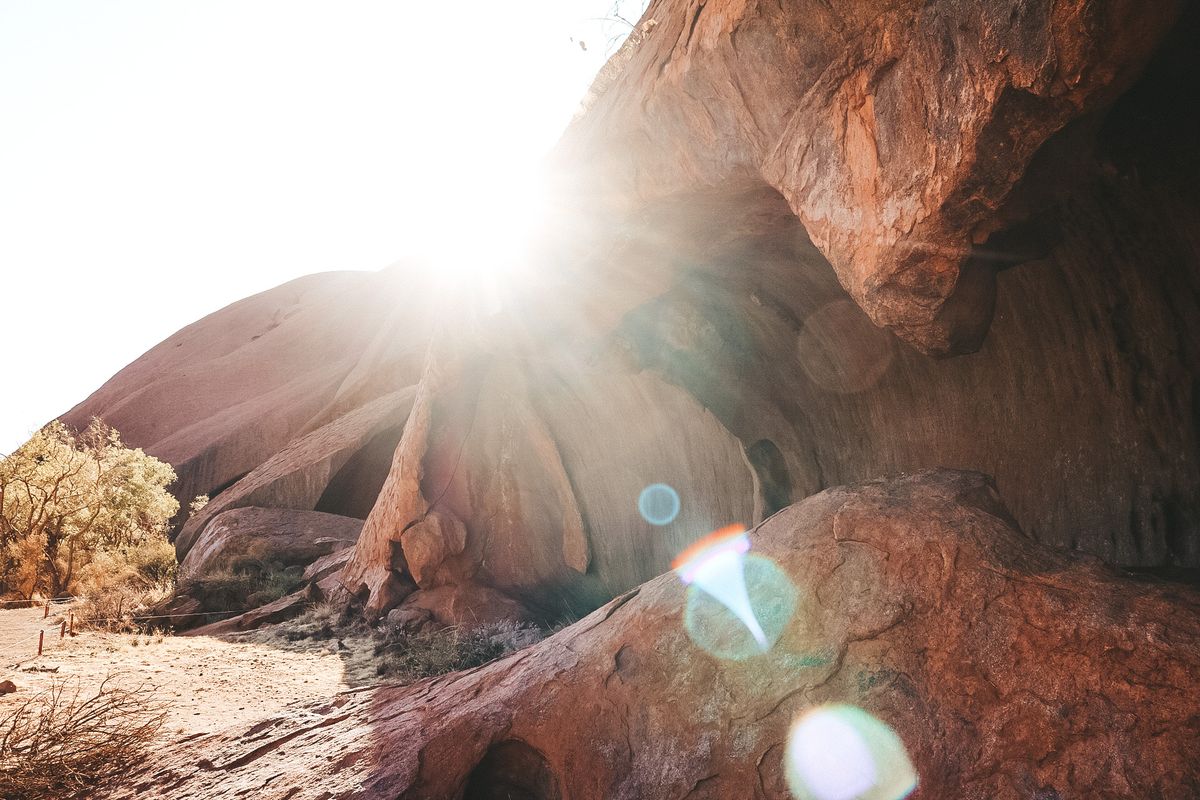Have you ever wondered about the hidden waterholes around Uluru and Kata Tjuta? These serene spots hold not just mesmerizing natural beauty but also significant cultural and historical importance. In this article, we will explore these hidden gems, uncovering their secrets and offering tips on how to visit them.

The Sacred Significance of Waterholes
Waterholes, or “tjukurpa,” play a critical role in Aboriginal culture. These natural reservoirs are considered sacred and are deeply intertwined with Dreamtime stories. Indigenous people believe that these waterholes were created by ancestral beings, and they serve as spiritual and physical sustenance for both the land and its inhabitants. Respecting these sanctuaries is paramount when visiting.
Moreover, the waterholes were crucial survival spots for the Aboriginal people, providing water in an otherwise arid landscape. Often, these water sources could mean the difference between life and death in the harsh Australian outback. The significance of these waterholes goes beyond mere practicality, however; they are storied places where rituals and gatherings took place.
For those interested in Aboriginal culture, visiting these waterholes offers a unique, intimate glimpse into a way of life that has persisted for thousands of years. The preservation of these sites is a testament to the enduring legacy of Australia’s first people.

Top Waterholes to Discover
As you venture through the rugged terrain surrounding Uluru and Kata Tjuta, you’ll find several waterholes worth discovering. Here are some of the most notable:
- Mutitjulu Waterhole: Nestled at the base of Uluru, this waterhole is not just a natural marvel but a significant cultural site. It’s one of the most accessible and frequently visited waterholes.
- Karingana Lookout: Located around the Kata Tjuta area, this site provides stunning vistas and a serene waterhole that offers a moment of reprieve from your journey.
- Lungkata Walk: This trail takes you around a lesser-known but equally fascinating waterhole, giving you the chance to explore Uluru’s quieter side.

What to Bring When Visiting
Proper preparation is essential when setting out to explore these hidden waterholes. Here’s a list of items you should consider bringing:
-
- Water: Even though you’re visiting waterholes, it’s crucial to stay hydrated.
- Sunscreen and Hat: The Australian sun can be relentless.
- Sturdy Footwear: The terrain can be rough, so good shoes are a must.
- Camera: You’ll want to capture the breathtaking scenery.
- Respectful Attitude: Remember, these sites are sacred.
A backpack containing essentials like snacks, a map, and first aid supplies is also a smart idea. Make sure to check weather conditions before heading out and inform someone about your plans, just in case.
Best Times to Visit
The ideal time to visit these waterholes is during the cooler months from May to September. During this period, the weather is more moderate, making trekking and exploring more comfortable. Additionally, these months often see less rainfall, ensuring the paths are less muddy and more manageable.
However, each season brings its own beauty. If you visit during the wetter months, you might find the waterholes fuller and the surrounding vegetation more lush and vibrant. Always be prepared for changing conditions, and pack accordingly.

Early mornings and late afternoons are the best times of day for visits. The softer light provides excellent photo opportunities, and the cooler temperatures make hiking more pleasant. Plus, experiencing a sunrise or sunset over these sacred sites is a truly memorable experience.
Conclusion
Exploring the hidden waterholes around Uluru and Kata Tjuta offers a unique blend of natural beauty and cultural depth. These sites are more than just picturesque spots; they are sacred, storied places that have sustained life for millennia. As you embark on this journey, remember to respect the land and its history, ensuring that these magnificent places can be enjoyed by future generations.
FAQs
1. Do I need a guide to visit the waterholes?
While it’s possible to visit some waterholes independently, hiring a guide offers deeper insights into the cultural and historical significance of these sites. It also ensures you stay safe and respectful.
2. Are the waterholes safe for swimming?
Most waterholes are not designated for swimming due to cultural and safety reasons. Always check local guidelines and respect restricted areas to ensure the preservation of these sacred sites.
3. How do I show respect when visiting these sacred sites?
Showing respect involves following local guidelines, not disturbing wildlife, refraining from swimming unless explicitly allowed, and avoiding littering. Listening to and honoring the stories and practices shared by Aboriginal guides is also essential.
4. Is there an entrance fee for visiting these sites?
Yes, there is an entrance fee for accessing the Uluru-Kata Tjuta National Park. These fees help in the maintenance and preservation of the park, as well as supporting the local Aboriginal communities.
5. What wildlife might I encounter while visiting?
You might encounter a variety of wildlife, including kangaroos, wallabies, and numerous bird species. It’s essential to keep a respectful distance and avoid feeding or disturbing the animals.



